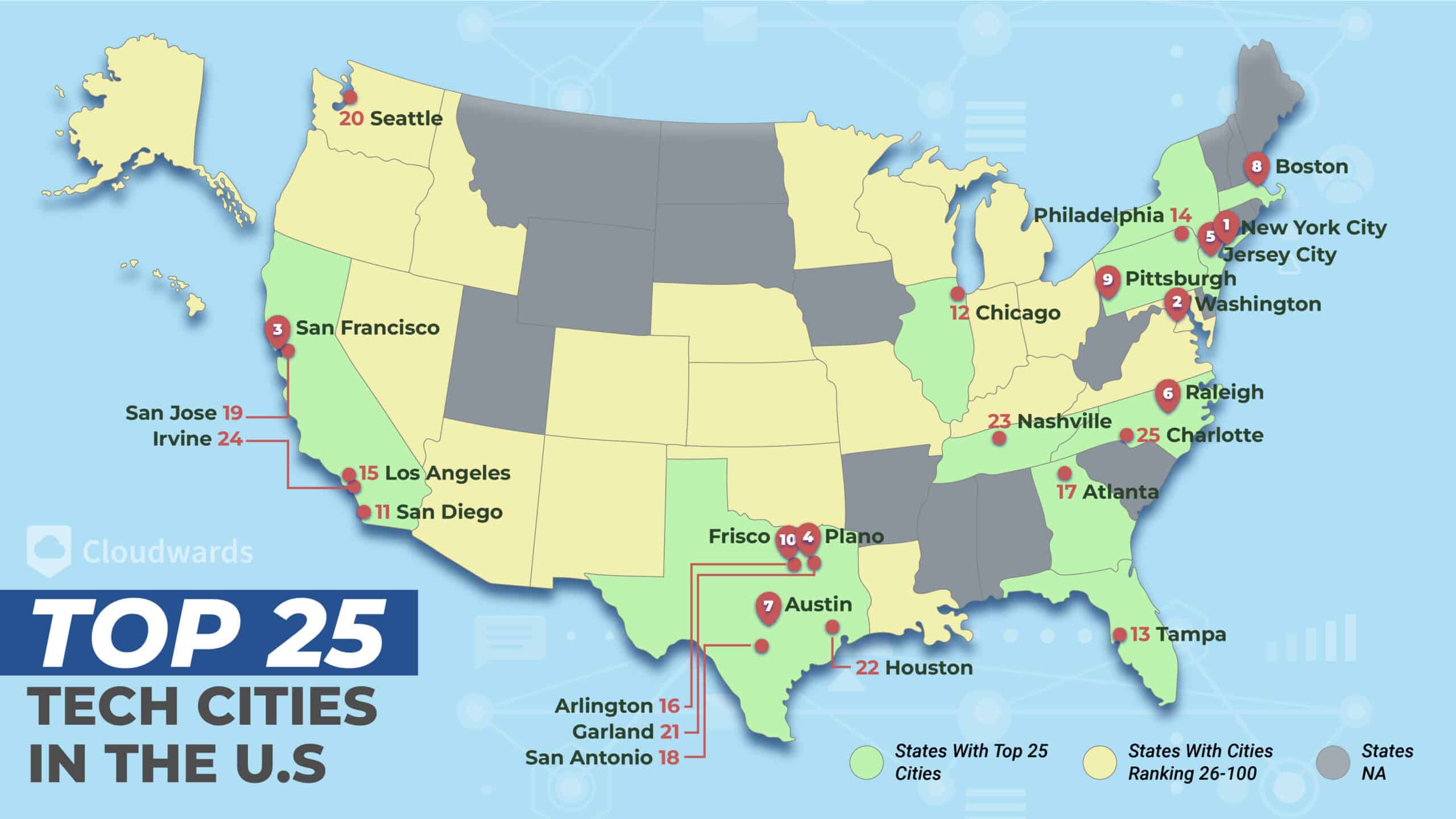2 Texas cities named on LinkedIn's inaugural 'Cities on the Rise'
jobs data
LinkedIn’s 2025 Cities on the Rise list includes two Texas cities in the top 25—and they aren’t Houston or Dallas.
The Austin metro area came in at No. 18 and the San Antonio metro at No. 23 on the inaugural list that measures U.S. metros where hiring is accelerating, job postings are increasing and talent migration is “reshaping local economies,” according to the company. The report was based on LinkedIn’s exclusive labor market data.
According to the report, Austin, at No. 18, is on the rise due to major corporations relocating to the area. The datacenter boom and investments from tech giants are also major draws to the city, according to LinkedIn. Technology, professional services and manufacturing were listed as the city’s top industries with Apple, Dell and the University of Texas as the top employers.
The average Austin metro income is $80,470, according to the report, with the average home listing at about $806,000.
While many write San Antonio off as a tourist attraction, LinkedIn believes the city is becoming a rising tech and manufacturing hub by drawing “Gen Z job seekers and out-of-state talent.”
USAA, U.S. Air Force and H-E-B are the area’s biggest employers with professional services, health care and government being the top hiring industries. With an average income of $59,480 and an average housing cost of $470,160, San Antonio is a more affordable option than the capital city.
The No. 1 spot went to Grand Rapids due to its growing technology scene. The top 10 metros on the list include:
- No. 1 Grand Rapids, Michigan
- No. 2 Boise, Idaho
- No. 3 Harrisburg, Pennsylvania
- No. 4 Albany, New York
- No. 5 Milwaukee, Wisconsin
- No. 6 Portland, Maine
- No. 7 Myrtle Beach, South Carolina
- No. 8 Hartford, Connecticut
- No. 9 Nashville, Tennessee
- No. 10 Omaha, Nebraska
See the full report here.

